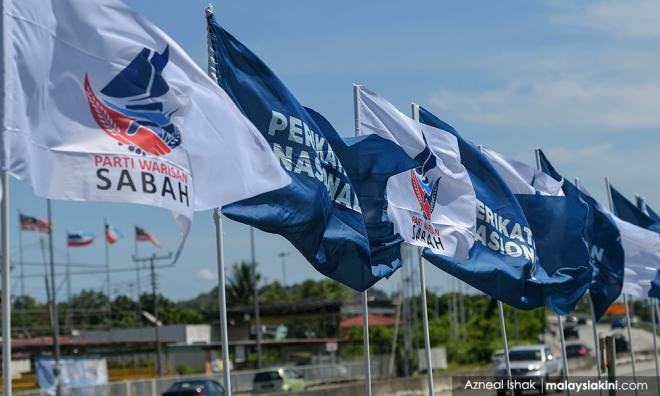
The dust is just starting to settle after the hectic nomination day last Saturday in Sabah. A total of 447 candidates from sixteen political parties, with 56 independents, are contesting for 73 seats in the coming polls. All of the contests are multi-cornered, with some contests (Bengkoka) even extending to a record 11 candidates nominated.
There is overlap of candidates in alliances, with those grouped under the newly Muhyiddin Yassin labelled Gabungan Rakyat Sabah contesting each other in 17 seats under parties (more through independent contests) and Warisan Plus trying to recover from hard seat negotiations from the almost rogue PKR (who ended up accepting the seven seats it was allocated).
Given the complexity of Sabah’s politics, this piece highlights key features about the state’s politics and observations from the rich slate of candidates.
Highly competitive contest
Foremost, Sabah is an extremely competitive poll. In GE14, the result was a tie for BN versus Warisan and its allies DAP and PKR, 29 seats each, with Star picking up the remaining two seats. The landscape remained split throughout the 26 months of the Shafie Apdal's Warisan government.
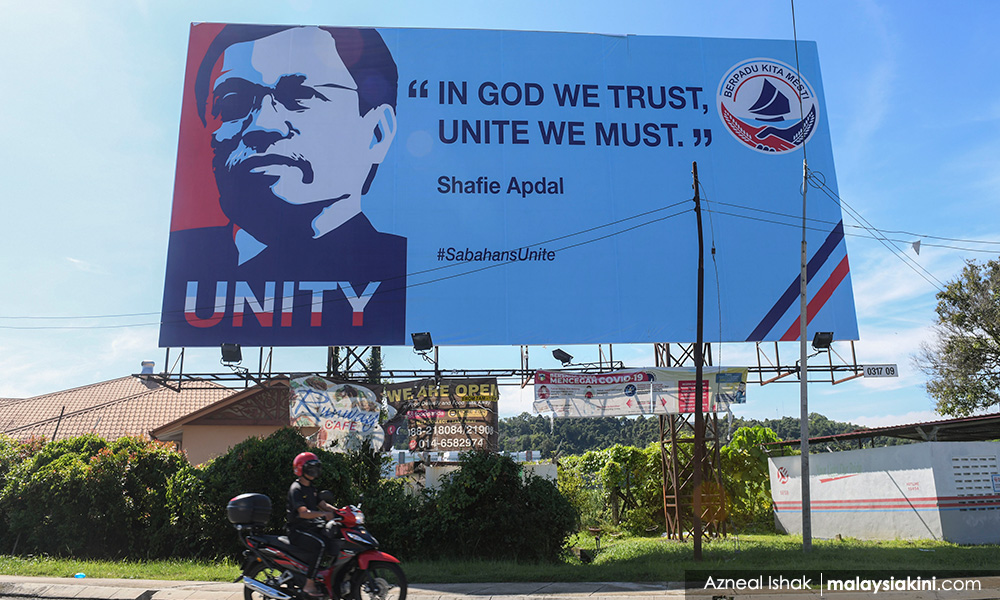
Before the nomination process, based on my studies on the ground, I estimated that 68 percent of the seats were competitive, with swings of less than 10 percent shaping the outcome. Post-nomination this number has increased to 78 percent or 57 out of the 73 seats. Of these, 22 seats are currently too-close-to-call.
Sabah’s competitiveness has been shaped by a history of large political swings, multi-cornered contests, the important role of candidates and the importance of the campaign, especially how the narrative unfolds and the role of resources in shaping the results.
The nominations on Saturday increased competitiveness with more clashes among supposedly allied parties, the fielding of at least seven serious independent contenders (such as Musbah Jamli in Tempasuk, Rubin Balang in Kemabong and Saddi Haji Abdul Raham in Sukau), and an expansion of the candidates across contests, pulling away votes and thus reducing margins of support. The campaign over the next twelve days will be important for shaping the outcome.
Not binary contest
From afar, there is a tendency to see the contest in black and white binary lens – newly named but not operational Gabungan Rakyat Sabah versus the more stable and with clearer leadership Warisan Plus led by Shafie Apdal. It is easy to simplify, as this fits the “with us” versus “against us” framing of national politics. In Sabah, however, even with the state’s own political polarisation, the complexity and diversity do matter.
Many fail to appreciate that many of the players are closely tied together, often tied to many different parties, not just in the recent frogging episodes. Many candidates – too many to count – have joined different parties over their careers. Almost all of Warisan came from other parties, for example.
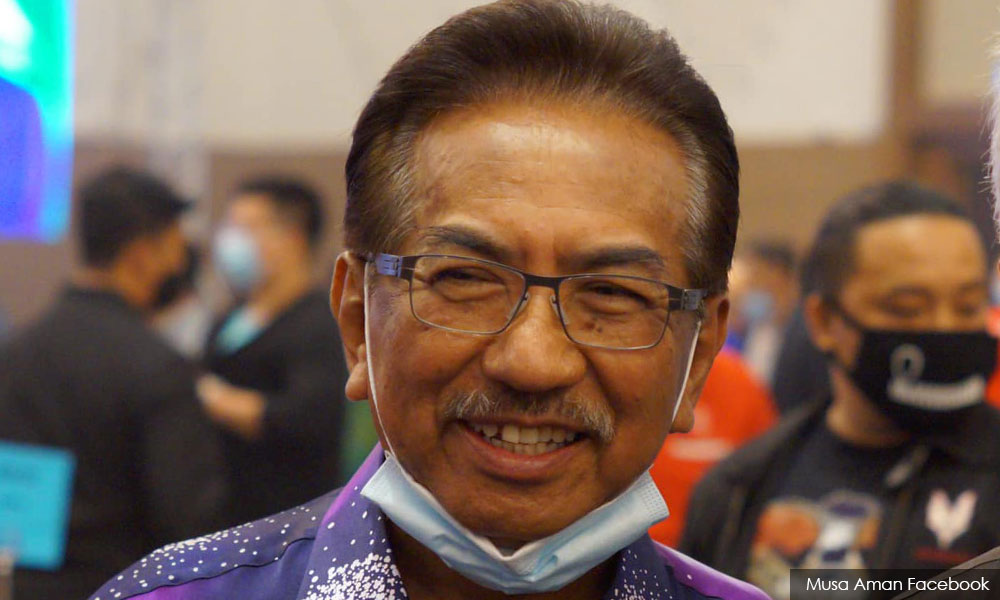
Attention has centred on the recent "frogging" episode with the 14 assemblypersons who moved to join Musa Aman, triggering the fall of the current Warisan Plus government. It is forgotten that jumping to political parties is common in Sabah and seen quite differently by supporters across the political divides. Upko, in particular, is facing heat in the largely Kadazan, Dusun and Murut (KDM) seats for making the "moral decision" of leaving the BN to form the Shafie government after GE14, which removed Musa and Umno from power in 2018.
Excluding those who jumped before GE14, 24 or 40 percent of the 60 assemblypersons jumped/defected from their original affiliation from 2018-2020, with nine of them double jumping. Quite a few double jumpers are still contesting, for example, Abdul Rahman Kongkawan in Labuk as an independent and Abidin Madingkir now with Star in Paginatan.
Centrality of candidate factors
As the candidate factor is so important in many contests, as opposed to the party, independents with standing, such as Amir Kahar Mustapha, a son of former chief minister Mustapha Harun contesting in Banggi or even Kenny Chua formerly of PKR but with access to machinery and resources in Inanam can affect the outcome.
Smaller new parties also have influence, mostly as spoilers, but also potentially as leading contenders as in the case of former foreign minister Anifah Aman of Parti Cinta Sabah (PCS) running in Bongawan, former Sabah Chief Minister Chong Kah Kiat of the Liberal Democratic Party (LDP) in Inanam and former assemblyperson Liew Yun Fah now of Sabah’s People’s Hope Party (PHRS) in Merotai.
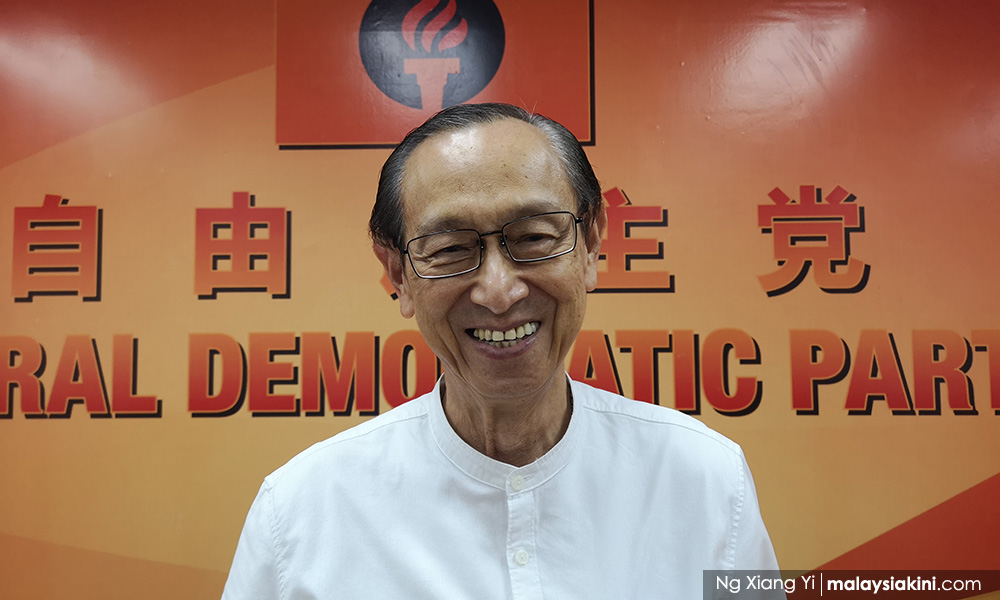
Even local ethnic and religious identities and ties, even within different faiths (such as different ties to the Borneo Evangeligal Church (SIB) as opposed to the Roman Catholic congregation, shape outcomes in places such as Limbahau or the different Sungai communities within Kuamut, as many of the candidates quietly appeal to these loyalties and fragment the vote. Local splitting of loyalties adds to the election’s competitiveness.
Family connections and fights
The primacy of family helps explain Sabah voting. As one brother who identifies with Warisan Plus’ ideals personally explains why he is voting for his brother, an Umno candidate; ties and loyalties mean different things on the ground.
Candidates have advantages in local contests if they have large families, such as Warisan’s Norazlinah Arif contesting in Kunak. Well-known families, especially from the political families of the state, have standing locally. Former Sabah chief minister and federal minister Salleh Said Keruak in Usukan is an example. Many children of prominent Islamic scholars also feature, such as Awang Ahmad Shah of Petagas.
In multiple seats, families are competing within themselves. The most publicised of these family fights is Shafie’s nephew Norozman Utsah Naim challenging him in Senallang, but the list is long from Telupid to Tambunan, where loyalities to the Pairin brother’s from different parties split the vote.
Another type of family feud is taking place in Sungai Sibuga where the sister of the current Sabah state governor Armani Mahiruddin is defending the family honour against Umno in what is seen as Musa territory. There is even a husband and wife contesting, Amir Kahar Mustapha and Aminah Ambrose – fortunately for their marriage in different seats, Banggi and Bengkoka respectively.
Family ties are an important part of political power in Sabah. While former and controversial chief minister Musa is not contesting, for example, four of his family members (blood and through marriage) are in Bongawan (brother), Membakut (son-in-law), Liawan (nephew) and Kawang (father-in-law of Musa’s son). Despite being also of South Asian origin, Musa’s lineage descends from one of the big families in Sabah. He celebrated a reunion of over 3,000 people in February 2018. Musa is seen also to be tied across the state, to even the Pairin brothers.
Regeneration and rebranding
Amidst these dynamic local shifts are important trends among political parties. First is the emergence of younger candidates. Umno has fielded many younger and relatively unknown candidates, many closely connected to Bung Moktar Radin and Ahmad Zahid Hamidi. Some are quite popular, such as Andi Muhammad Surady Bandy in Tanjung Batu.
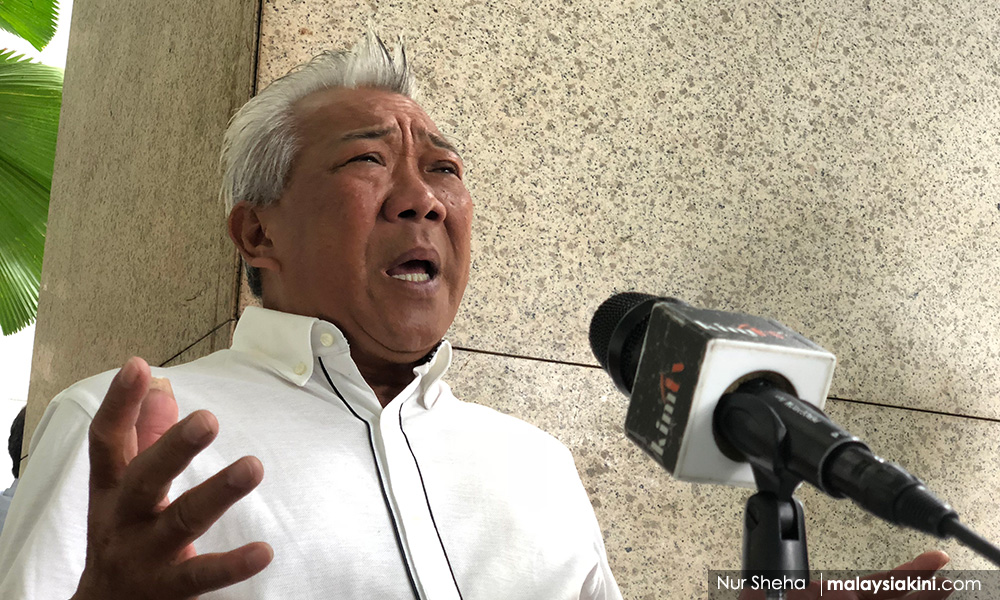
Most Umno candidates are relying on party machinery, traditional loyalties and party financing to secure victories. Many face tough fights given the saliency of Warisan’s "UMNOOUT" campaign and persistent reality of sabotage.
Upko has similarly fielded new candidates, as many of their old timers jumped. This has given the party an opportunity to bring in talented professionals such as company chairperson Felix Joseph Sitin in Telupid and land rights lawyer Nelson Angang in Kuala Penyu – both facing tough fights.
Parti Bersatu Rakyat Sabah (PBRS) is fielding the youngest candidate, political science student Yilson Yanggun, 22, in Tandek. DAP, using the Warisan logo, is slating Justin Wong, 28, in Sri Tanjong. Across the main political parties – from PBRS to Umno – younger candidates are bringing new ideas for the state and their generation.
Parties are also trying to rebrand. The most obvious of these is Bersatu. Aiming to downplay its Umno roots and federal origins, Bersatu is building its campaign around Muhyiddin and the sense of opportunity (and opportunism) that a new party can bring at the local level.
While some of its candidates are new, many are familiar stalwarts such as popular Masidi Manjun contesting in Karanaan, Ghulam Haidar Bahadar contesting in Kawang and Hajiji Noor in Sulaman (Muhyiddin’s preferred CM candidate in a crowded PN/BN/PBS field) and less popular but still strong contenders double jumpers such as Muis Picho of Sebatik and Limus Jury of Kuala Penyu. Bersatu is wrestling with its identity as a party of defectors but does include some new candidates such as Shafie’s nephew, mentioned above.
Embedded exclusion
Despite the changes taking place, the parties continue to repeat patterns of the past. Most of the candidates are men – only 43 or 9.6 percent of the candidates are women. This is below the national share in Parliament 12.5 percent, and considerably lower than neighboring Sarawak. In particular, entrenched patriarchy inside Sabah political parties across the divide accounts for the exclusion.
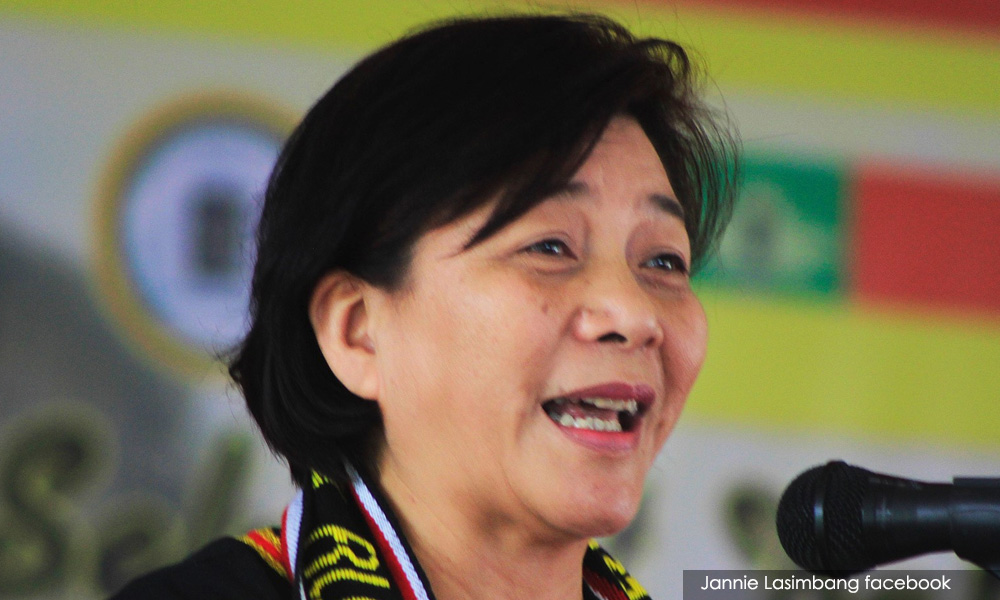
This is compounded by the prominent role of money in Sabah politics, which favours men who have greater access to resources. Female candidates – talented grassroots leaders and professionals such as Upko’s Georgina George in Paginatan, Star’s Flovia Ng in Tulid and MCA’s Chang Kee Yeng in Likas face obstacles from the electorate as well – sidelined for their hard work fighting for indigenous communities or treated with tokenism as a "pretty face".
Even former deputy state minister Jannie Lasimbang, of DAP contesting under the Warisan logo, has not been given recognition for her work and contributions to address concerns of indigenous women. Female women independent candidates face even higher hurdles. Part of changing Sabah is tackling old norms that discriminate and prevent more inclusive representation.
Along with gender inequality is the problem of elitism. Established families have advantages in name recognition and resources. Most of the candidates across Sabah come from traditional elites, many children of politicians, although this is changing slowly as new contenders emerge – some would suggest too slowly as this prevents new inputs. Many look to see whether these elites will represent themselves or the people at large – there is considerable skepticism based on the past.
Despite these systemic biases of gender and class, Sabahans have more choices. The electoral contest is arguably one of the most competitive ever – in a state with a rich history of competitive polls and change of governments at the state level.
The advantage lies not with the various political alliances, but with the people themselves at this point, who with coming out to vote in this competitive poll will set the state’s political trajectory ahead.
BRIDGET WELSH is a Senior Research Associate at the Hu Fu Centre for East Asia Democratic Studies and a Senior Associate Fellow of The Habibie Centre. She tweets at @dririshsea. - Mkini
The views expressed here are those of the author/contributor and do not necessarily represent the views of MMKtT.


No comments:
Post a Comment
Note: Only a member of this blog may post a comment.